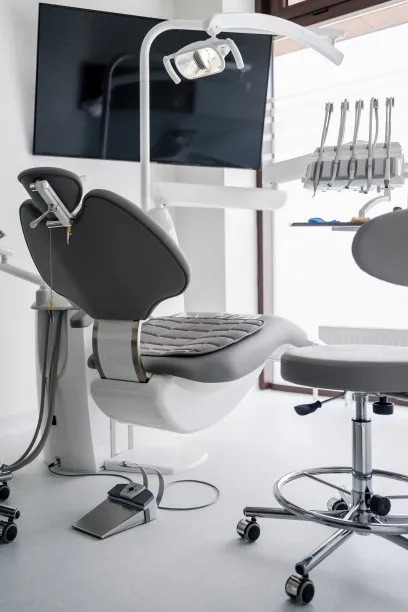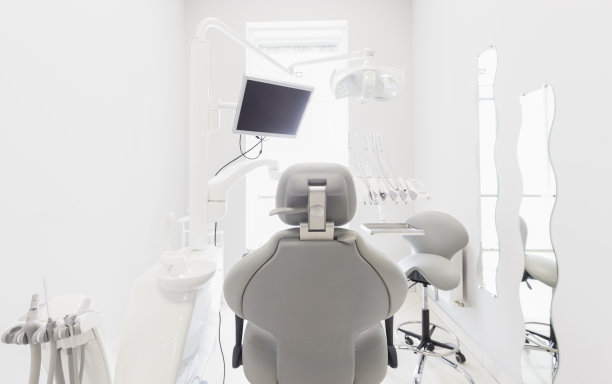Summary: Extracting a tooth is often viewed as a last resort in dental care, yet it can serve numerous benefits for both dental health and overall wellbeing. This article delves into four primary reasons for tooth extraction, including alleviation of dental pain, prevention of further dental complications, improving oral hygiene, and promoting better alignment of teeth. Each section provides insights into how these factors contribute to a healthier mouth and a more confident smile. Overall, understanding the importance and benefits of tooth extraction can empower individuals to make informed decisions about their dental health.
1. Alleviating Dental Pain and Discomfort

One of the most immediate benefits of extracting a tooth is the relief of dental pain. Severe tooth decay, abscesses, or periodontal disease can lead to intense discomfort that affects a persons quality of life. When conservative treatments like fillings or root canals fail, extraction can offer a definitive solution to this persistent pain.
Moreover, failing to address problematic teeth can lead to a cycle of continuous pain and discomfort. Extracting the affected tooth allows individuals to finally escape this cycle, paving the way for recovery and peace of mind. This relief enables them to engage fully in daily activities without the constant distraction of dental issues.
In addition to physical comfort, alleviating dental pain positively impacts mental wellbeing. Chronic pain can lead to stress, anxiety, and even depression. Therefore, tooth extraction can be a crucial step toward restoring an individuals overall sense of wellbeing.
2. Prevention of Further Dental Complications
Tooth extraction can play a significant role in preventing further dental complications. Retaining a damaged or decayed tooth can lead to infections that might spread to adjacent teeth and even to other areas of the body. By opting for extraction, individuals can minimize the risk of these potential complications.
For instance, if a tooth is severely infected, it can instigate a systemic infection that could result in severe health issues. Extraction eliminates this risk and allows the body to heal. This preventative measure not only protects oral health but also safeguards an individual’s overall health.
Furthermore, removing a problematic tooth can help in better managing dental hygiene. With fewer troublesome teeth, individuals can maintain their oral hygiene more effectively, reducing the risk of cavities and gum disease in the future.
3. Improving Oral Hygiene Practices
Another significant aspect of tooth extraction is its potential to improve oral hygiene. When teeth are overcrowded or misaligned, they can be difficult to clean properly. This can lead to plaque buildup, cavities, and gum disease—issues that could otherwise be avoided. Extracting teeth that hinder oral hygiene can create a more accessible and manageable mouth structure.
In a properly aligned set of teeth, brushing and flossing can be performed more effectively. This aids in maintaining a healthier mouth, which is essential for preventing a myriad of dental issues. Improved oral hygiene ultimately leads to better dental check-ups and less frequent visits to the dentist, lowering long-term dental care costs.
Moreover, good oral hygiene contributes to overall health. Studies have shown a connection between oral health and systemic conditions like heart disease and diabetes. Therefore, by focusing on oral hygiene through tooth extraction when necessary, individuals may also be enhancing their general health.
4. Promoting Better Alignment of Teeth
Tooth extraction can also serve to promote better alignment of the remaining teeth. In cases of overcrowding, extracting one or more teeth can create necessary space for proper alignment, leading to better aesthetics and improved bite functionality. This can be particularly important for individuals with future plans to straighten their teeth through orthodontics.
Having properly aligned teeth not only enhances ones smile but also improves jaw function. Misalignment can lead to unnatural wear on teeth and jaws, while proper alignment can alleviate issues such as jaw pain and headaches associated with temporomandibular joint disorders.
Moreover, a balanced bite plays a substantial role in mental and emotional wellbeing. Individuals who are satisfied with their smiles often experience boosts in self-confidence, leading to improved social interactions and quality of life.
Summary:
This exploration into the reasons and benefits of tooth extraction unveils the significant role it plays in promoting overall dental health and personal wellbeing. From alleviating pain and preventing future complications to enhancing oral hygiene and improving tooth alignment, extraction can pave the way for a healthier mouth and a more confident smile.
This article is compiled by Vickong Dental and the content is for reference only.
Vickong Dental
Vickong Dental is a large medical group established in Hong Kong in 2008 by professors from well-known medical universities in Guangdong and Hong Kong, as well as medical doctors from key national '985' universities (including Master's supervisors and senior professors). The chain of branches brings together expert dentists with PhDs and Master's degrees from Hong Kong and Mainland China, committed to providing high-quality dental treatment.
"Vickong Dental Practices the University Motto of 'Healing and Serving Society,' with a Stable Operation for Sixteen Years. It Has Been honored with Hong Kong Enterprise Leaders's Choice,' and is a Global Trusted Implant Center for the Nobel Implant System. Recommended by Hong Kong Metro Broadcast and Guangdong Television, it Serves Customers from Over Thirty Countries and Regions, Gaining the Trust and Favor of Citizens from the Guangdong-Hong Kong-Macau Greater Bay Area and Surrounding Cities.

Thousands of customers' unanimous praise
The most recognized and highly recommended dental service by customers in the Guangdong-Hong Kong-Macau Greater Bay Area
We Ensure You Receive Detailed Care and Attention Here
Hong Kong standards, Shenzhen prices, Your Trusted English-speaking dentists

Vickong Dental Medical-Grade Instrument Disinfection Process
Vickong Dental Medical-Grade Instrument Disinfection Process

Vickong Dental Chain: A Warm and Comfortable Environment for Treatment






Appointment Hours

Q&A
Why choose Vickong Dental?
Vickong Dental practices the university motto 「Medicine to Benefit Society」, with each branch bringing together highly qualified dentists with doctoral and master’s degrees from Hong Kong and the Mainland, and has maintained seventeen years of steady operation。Recipient of 「2024 Hong Kong Enterprise Leaders Brand」, 「2025 Hong Kong Enterprise Leaders Brand」, a Nobel Biocare Global Trusted Implant Center, and a brand recommended by Metro Radio Hong Kong and Guangdong TV。
To date, we have served customers from more than thirty countries and regions,earning exceptionally high word-of-mouth recognition and trusted recommendations from residents across the Guangdong-Hong Kong-Macao Greater Bay Area and surrounding cities
We have eight major branches in Zhuhai、Shenzhen,and a consultation and service assurance center in Hong Kong,so you can book a free consultation at any time for any questions,which is very reassuring.
If I do not accept the quotation after the CT scan, will I be charged??
No! As long as the actual treatment has not started, you will not be charged any fees.
Will there be any additional charges during the treatment process?
No, there won’t be any additional charges. Before treatment begins, we will clearly explain the treatment plan and its corresponding fees. Only after the patient agrees and signs the consent form will we proceed with the dental service.
Can I pay in Hong Kong dollars?
Yes. Vickong Dental accepts payment in Hong Kong dollars. The amount will be converted based on the exchange rate of the day, and the applicable rate will be clearly communicated to you in advance.
Can I reschedule my appointment at any time?
Yes. Please contact us via **WeChat** or **WhatsApp** as early as possible, providing your original appointment time and details, along with your preferred new date and time slot for rescheduling.













